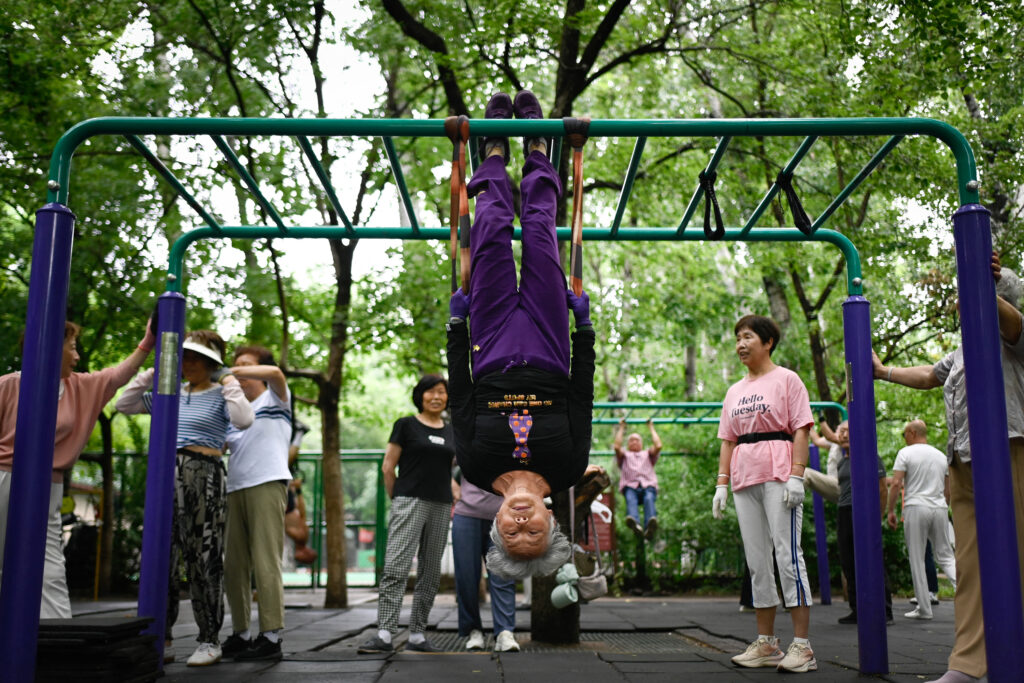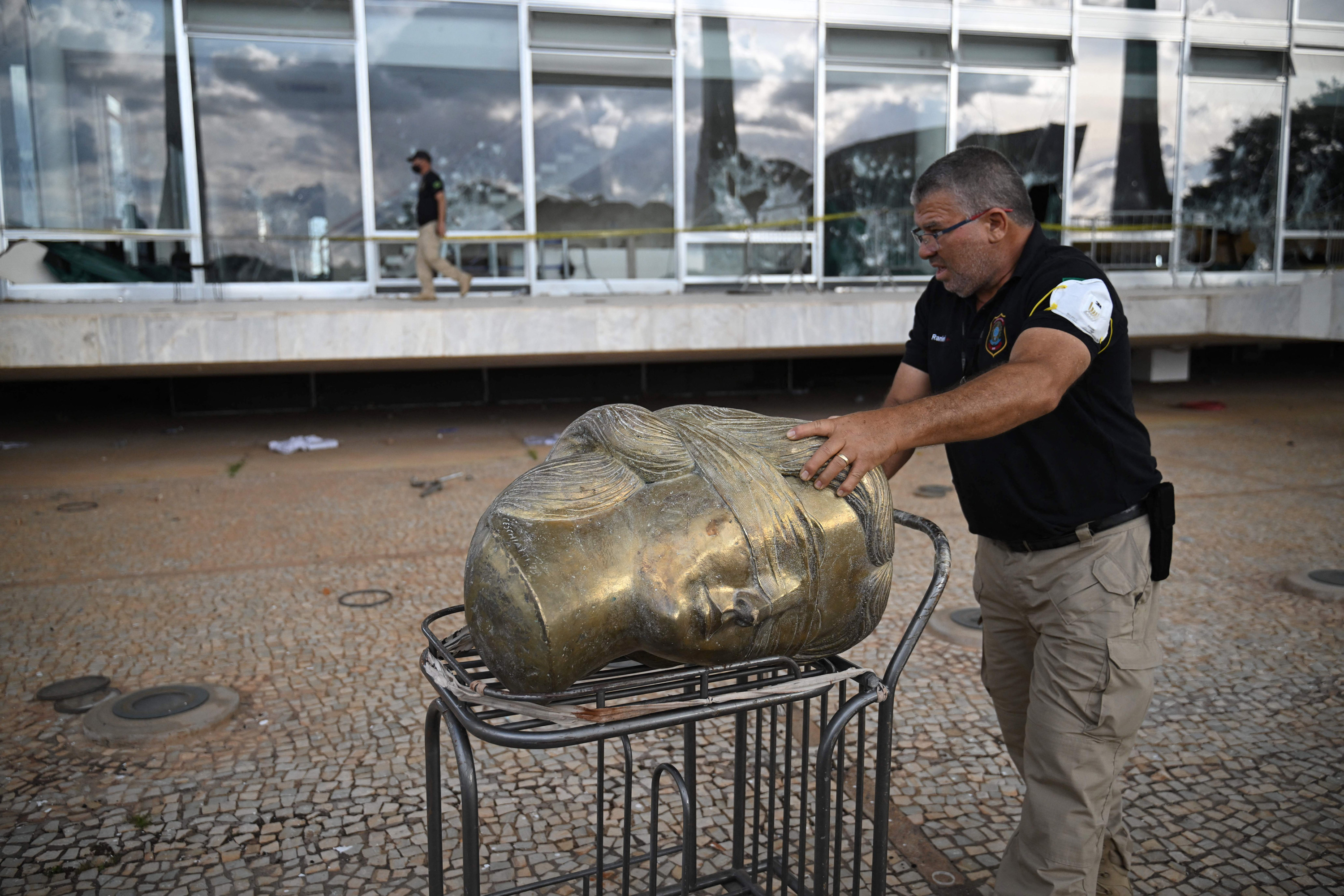My old friend, Stephen Kotkin, had the supreme fortune to study as an undergraduate with the historian Christopher Lasch. Lasch was a legendary teacher at the University of Rochester and Steve has recounted stories galore about Lasch’s brilliance. Outside the academy, Lasch became a celebrity (of a sort) and a leading public intellectual in the 1970s and 1980s for his probing psychological interpretations of politics and society in the age of consumerism. Of late he has been exhumed by some on the left, and more on the right, for his critiques presaging the neoliberal arguments regnant today. In this issue, Soli Özel, the brilliant Turkish political scientist and Lasch devotee, takes Lasch’s measure for the current moment.
We follow with an interview I conducted with the Argentine journalist Juan Elman on the particularities of the Right in the Americas. (Juan wrote for The Ideas Letter several months ago after attending the CPAC conference in DC.) Our conversation zooms out on some of the themes he first addressed and looks comprehensively at the vitality of the region’s right-wing movements.
We are glad to also (and once again) feature the supple pen of Shanghai-based writer and analyst Jacob Dreyer. Jacob headed to Yunnan province to get a unique perspective on the country’s advancing soft infrastructure, and the ways in which AI might be a boon for China’s poorer and more far-flung provinces.
We kick off our curated section with a spirited essay from our close partner Africa is a Country and a good friend of The Ideas Letter, Sa’eed Husaini. He looks at the question of neoliberalism and its potential alternatives (or, alternatively, its recrudescence) in comparative perspective, which is necessary for a fuller appreciation of its continued power.
We follow Sa’eed with a recent piece in Foreign Policy from Ivan Krastev (with an assist from myself) that asks why historical analogies are so commonplace today and whether they are being deployed as a substitute for having a proper debate about our common future.
We are also honored to feature a recent video lecture from Paul Gilroy, cultural theorist extraordinaire and student of Stuart Hall, on how to retain critical faith in times of profound distress.
We conclude with an arresting essay from our friends at Aeon, penned by Ethiopian philosopher Fasil Merawi, on the drag-down intellectual fight over schools of philosophical thought in the country. A not-to-be-missed story.
Our musical selection for Ideas Letter 44 is the title track of Sonny Rollins’s 1966 record East Broadway Rundown. For twenty minutes, Rollins and trumpeter Freddie Hubbard take leaps of improvisational faith fueled by John Coltrane’s rhythm section (the greatest of its day), performing music as propulsive as it is subtle and experimental. Rollins’s recent biographer penned almost eight hundred pages in a well-reviewed book yet fails to explain why Rollins never again returned to this adventurous “inside-outside” playing.
We are taking a fortnight’s holiday and will be back in your virtual inboxes for Issue 45 on August 7.
—Leonard Benardo, senior vice president at the Open Society Foundations
Lasching Out

Soli Özel
The Ideas Letter
Essay
Historian Christopher Lasch’s critiques of liberalism, capitalism, and elite-driven democracy are particularly relevant for our current times. According to Özel, Lasch anticipated the social, cultural, and institutional decay—particularly the abandonment of civic virtue and the family’s role in sustaining democracy—that enabled the erosion of liberal norms and the emergence of populist authoritarianism. Yet he underestimated the dangers within populist movements and failed to fully reckon with how a plutocratic counter-elite could co-opt and intensify the very social resentments he hoped would revive democratic life.
“Reading Lasch’s work now reveals a simple truth: Many, if not most, of the analyses in circulation since Trump’s victory in 2016 had been readily available in the past. Trumpism also clearly had political precursors. And yet for decades the trends Lasch identified were not taken with the seriousness they deserved. They were filtered out as anomalies by the prevalent liberal ethos or, in Lasch’s parlance, the “progressive elitist” outlook of the managerial classes.”
The Right and the Upright
An Interview with Juan Elman

Leonard Benardo
The Ideas Letter
Essay
Journalist Juan Elman reflects on the evolving global far right, examining how Trumpism blends chaos with radicalism and maintains unity despite challenges to its power. Drawing comparisons with leaders like Jair Bolsonaro and Javier Milei, he unpacks the emotional power of right-wing populist movements, the transnational diffusion of authoritarian tactics, and the difficulties in leadership succession they face.
“It’s normal to see your ideological rival as stronger and more coherent than it really is. The intellectual right also speaks of the left as a powerful movement and a product of a long march, which included its own Gramscian twist (by the way, I think this is a more common reading among Latin American right-wing ideologues like Agustín Laje). The right generally thinks of itself as operating from a place of weakness. And the left often buys that narrative.”
AI, China’s Invisible Scaffolding

Jacob Dreyer
The Ideas Letter
Essay
Dreyer explores how China is deploying AI as a tool to modernize state functions and bridge deep social divides, especially between urban and rural areas. AI-optimized public canteens for senior citizens and remote healthcare in Yunnan demonstrate how the government sees technology as a cost-effective way to extend public services, optimize resource use, and unlock human potential—all part of a broader shift from hard infrastructure to an “AI+” model of governance that promises efficiency, equity, and control.
“The results are striking. According to official figures, AI-supported primary care in Yunnan provided over 26 million diagnostic suggestions in just one year—the province’s population is just under 47 million—reducing misdiagnosis rates and unnecessary referrals. Such initiatives aren’t just closing rural-urban gaps; they’re reframing what’s possible for public healthcare in a vast, diverse country. In a way, AI is a perfect match for rural Chinese healthcare needs. AI can take on the function of a doctor, and diagnose illnesses, but it can’t replace the nurse, who changes the bed pan, gives the patient comfort, and helps to establish the patient’s trust in the medical system more broadly. The skills of the nurse are not hard to find in rural China; it’s the doctor, with high-end medical equipment, who has been missing. Building hospitals in every village would be extremely expensive. But every villager has a smartphone.”
Africa’s last neoliberals
Sa’eed Husaini
Africa is a Country
Essay
It’s too soon to speak of the death of neoliberalism, cautions Husaini, pointing its resilience in Africa, where neither leftist political parties nor sustained anti-neoliberal movements have effectively emerged to challenge the economic orthodoxy. Comparing Africa’s experience to Latin America’s “pink tide,” he argues that the absence of deep economic crises, strong movement infrastructures, and cohesive political alternatives have so far delayed rupture—but worsening conditions may soon test that stability.
“…Some of the external elements of the current political and economic context in Africa appear to align more closely with the contexts from which the pink tide emerged. The end of the faux optimism of “Africa rising,” the intensification of cost of living crises across the continent—especially in the wake of the COVID-19 pandemic and Russia-Ukraine War—and the re-emergence of crippling debt and increasingly delegitimized party systems suggest that the grip of Africa’s last neoliberals is growing more tenuous. … If the pink tide taught us anything, it’s that crisis alone is not enough; what matters is how movements respond.”
Why Compare the Present to the Past?
Thinking via historical analogy has become the preferred way to confront our anxieties
Leonard Benardo and Ivan Krastev
Foreign Policy
Essay
In today’s uncertain geopolitical landscape, historical analogies have replaced future-oriented visions as the dominant framework for understanding global events and facing the anxieties of the past. While analogies can be misleading and unduly shaped by bias, they nonetheless offer a powerful cognitive tool for policymakers to simplify complexity, communicate urgency, and connect current events to past experiences.
“In a world in which universal political ideologies no longer shape the political personalities of the major geopolitical actors, historical analogies offer opportunities to move beyond pedestrian foreign-policy realism, in which political decisions are analyzed according to singular political factors or categories. Analogies, after all, are as pluralistic as history itself.”
Critical Imagination in Crisis Times
Paul Gilroy
The Humanities Institute at UC Santa Cruz
Video
Gilroy explores how Britain’s post-imperial decline and “stuckness” have fueled a broader global resurgence of racial nationalism, nostalgia, and authoritarianism. Drawing on cultural criticism, art, and music, he argues for cultivating a “critical imagination” grounded in anti-racism, reparative humanism, and radical attentiveness, warning that fascism’s reappearance is not confined to the past but embedded in today’s political, emotional, and technological landscapes.
“There is no safe nationalism and the nationalism of minor nationalisms or anti-imperial anti- Colonial nationalism are not a sort of resting place which is somehow inoculated against the general pathology of nationalism as authoritarian, as potentially fascistic. I just don’t see that possibility. I don’t think there’s any clean nationalism in the world any pure nationalism to be discerned … I can’t console myself with the idea that there’s a safe version of nationalism that I can kind of reach for that will, or a way of doing nationalism that will somehow not be vulnerable to these things. So maybe the answer is that you do it and in the doing you try to minimize that.”
What is Ethiopian philosophy?
Fasil Merawi
Aeon
Essay
The future of philosophical enquiry in Ethiopia stands at a crossroads, riven by two competing schools of thought: universalists, who view philosophy as a continuous global dialogue transcending cultural boundaries, and Africanists, who see it as a means of reclaiming suppressed indigenous knowledge and resisting Eurocentrism. The debate often centers on the Hatatas, two 17th-century texts whose authenticity and philosophical value are contested, with critics arguing they may be colonial fabrications driven more by ideology than philosophical inquiry.
“If Ethiopian philosophy is to make any form of progress, it needs to take part in the discussion of African philosophy as well as the universal quest for knowledge. This cannot be attained through studying only the past or, on the other hand, abandoning history and human values in the name of universality. It is not just the Hatatas but also the analysis of contemporary issues that need to be accommodated into the study of Ethiopian philosophy. At the same time, Ethiopian philosophers shouldn’t blur the distinction between philosophy and anthropology in the name of engaging in a socially grounded philosophical practice.”
